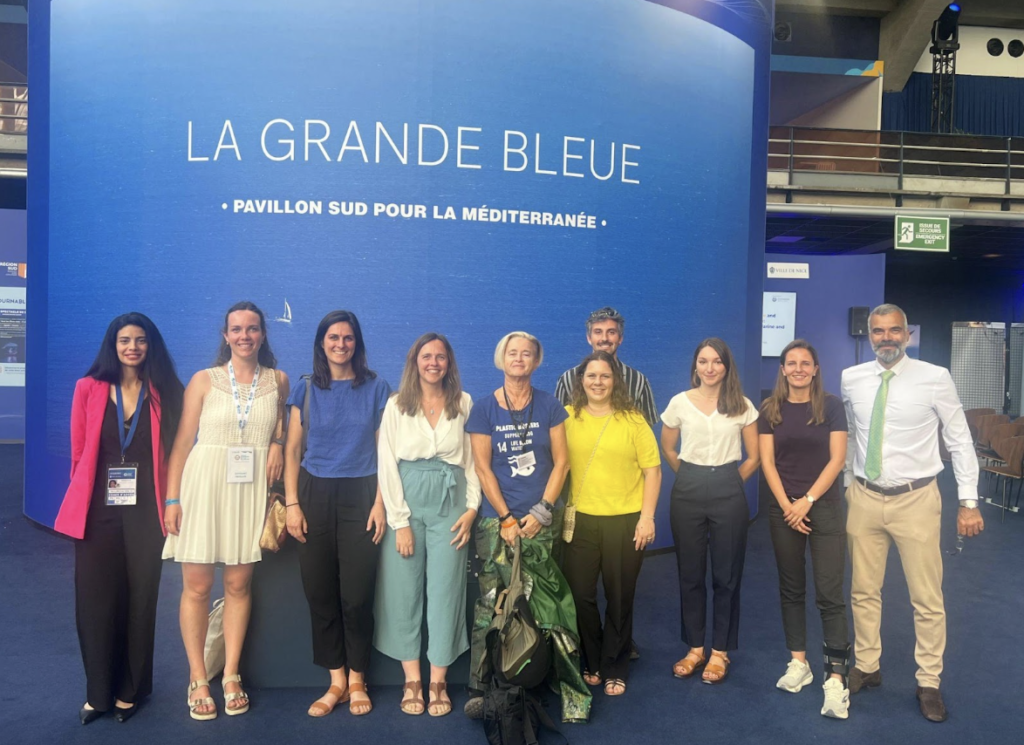At the 2025 United Nations Ocean Conference in Nice, the Interreg Euro-MED Natural Heritage and Sustainable Tourism Missions came together in a joint side event to highlight their contribution to inform and implement ocean-related policies in the Euro-Mediterranean area. With a specific focus on Blue Economy, climate adaptation, and ecosystem restoration, the session brought forward integrated policy recommendations based on concrete actions from thematic projects.
From the Natural Heritage Mission, the event showcased the policy recommendations from Dialogue4Nature, aligned with Target 2 of the Global Biodiversity Framework, i.e. to restore 30% of degraded ecosystems by 2030, and the EU Nature Restoration Regulation. Recommendations emphasised halting further degradation, promoting passive restoration of marine habitats, and embedding Nature-based Solutions (NbS) into restoration strategies. Additional focus was placed on innovative funding mechanisms and multi-level governance to foster long-term and scalable impact.
Thematic projects under the Natural Heritage, such as ARTEMIS, are integrating the societal and monetary values of seagrass ecosystem services into technical (state-of-the-art restoration protocols), financial (Payment for Ecosystem Services schemes) frameworks to support restoration of seagrass at scale. Recently started, MIRAMAR will pilot harmonised monitoring of multiple stressors (e.g., plastics, climate impacts, invasive species) across 9 sites, to inform mitigation and restoration actions. GreenList4MMPA works to adapt IUCN’s Green List standard to Mediterranean Marine Protected Areas, to promote effective and equitable management. Complementing this, MPA4Change aims to mobilise at least 100 MPAs in an MPA Alliance to develop and implement climate adaptation plans by 2030 through standardised monitoring, citizen science, and capacity-building tools.
On the Sustainable Tourism side, Dialogue4Tourism White Paper developed governance recommendations to support the sector’s adaptation to climate change. These include the development of local adaptation plans by authorities, tourism sustainability certifications, dedicated adaptation funds, the creation of a Euro-Mediterranean Task Force on climate-resilient tourism and an Adaptation Research Hub, etc. The NaTour4CChange project is already piloting these principles across six destinations, by developing Tourism Climate Action Plans that promote NbS. In parallel, AQUAMAN focuses on water scarcity mitigation in tourism-intensive coastal areas, by promoting sustainable water management and reuse strategies.
The side event showcased how Euro-MED cooperation bridges marine restoration, climate adaptation, and sustainable tourism. Grounded in concrete projects, the Missions’ recommendations offer practical tools for policymakers.


